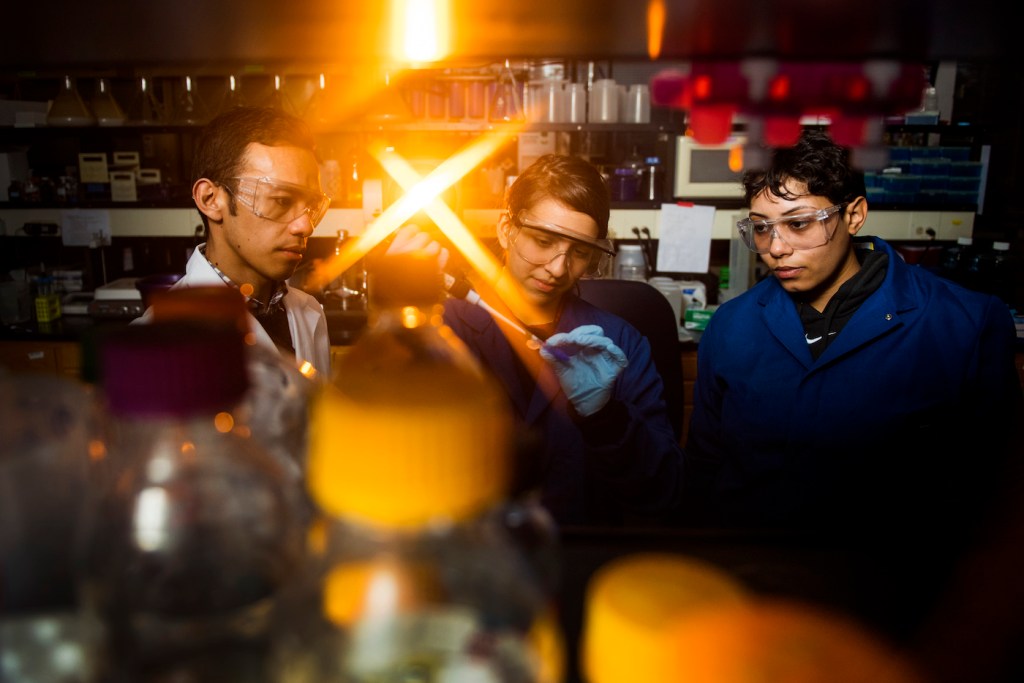New program ‘strengthens pathway to success’ for minority STEM students

As the vice provost for Northeastern’s PhD Network, Sara Wadia-Fascetti has found that everyone benefits when barriers facing minority populations are addressed. That’s the outcome she expects to see from a new program at Northeastern called Strategic Advancement of Rising Scholars, which will provide fellowships and mentoring to a cohort of 12 underrepresented minority students pursuing doctorates in STEM fields.
Northeastern was chosen as the 2018 to 2020 host site for STARS, which is funded by a $1 million National Science Foundation grant through the Louis Stokes Alliances for Minority Participation (LSAMP) Bridges to the Doctorate program. James C. Bean, provost and senior vice president for academic affairs, will serve as the grant’s principal investigator while Wadia-Fascetti will manage the program, which will be administered through Northeastern’s PhD Network.
The STARS Program includes faculty from each of the five PhD granting colleges: Barbara Guthrie (Bouve), Ben Hescott (CCIS), Hameed Metghalchi (COE), and Carla Mattos (COS). In addition, Richard Harris (COE) and John Armendariz (Vice Provost for Diversity and Inclusion) provide important liaison work with the Northeast LSAMP Alliance.
“STARS is aimed at increasing diversity, with a particular focus on our domestic students in these historical groups who pursue and complete the PhD. That’s the main mission of the program,” Wadia-Fascetti said. “The STARS fellowship program provides the structures to strengthen the education and career pathways for these students.”
The program includes funding for 24-month fellowships for 12 students, plus an additional 36 months of support through research or teaching assistantships. The team is recruiting students to join Northeastern’s PhD programs in the 2018 and 2019 fall terms.
In addition to the fellowships, STARS will provide incoming minority students with mentoring and other programs to help them acclimate and build networks. The grant also includes professional development opportunities for faculty to improve their mentoring practices.
Wadia-Fascetti said the doctoral students entering Northeastern through STARS will already be well-qualified to complete an advanced degree. “But so much of our success is based on our social networks and our being part of a community, she said, that we need to make sure we have an inclusive community within our PhD education system.”
“When we address things that improve the experience of the minority populations coming in through this program, we’re actually going to make the doctoral program better for all of our PhD students,” Wadia-Fascetti said.





